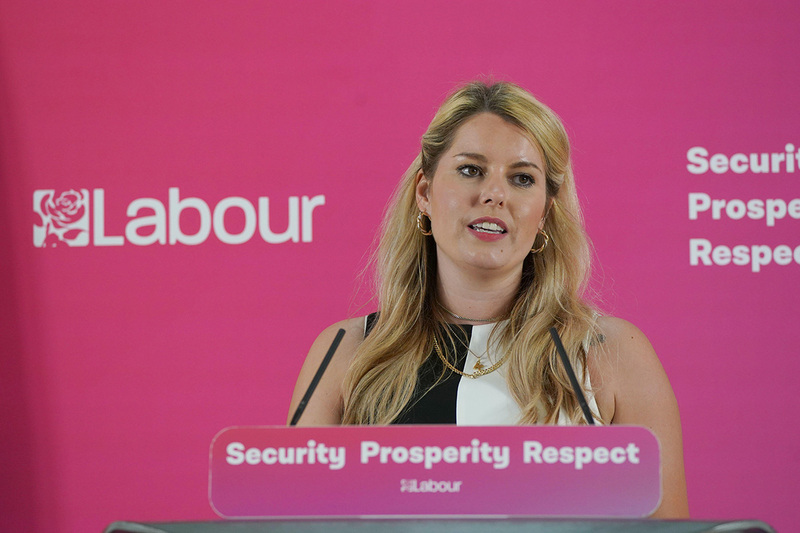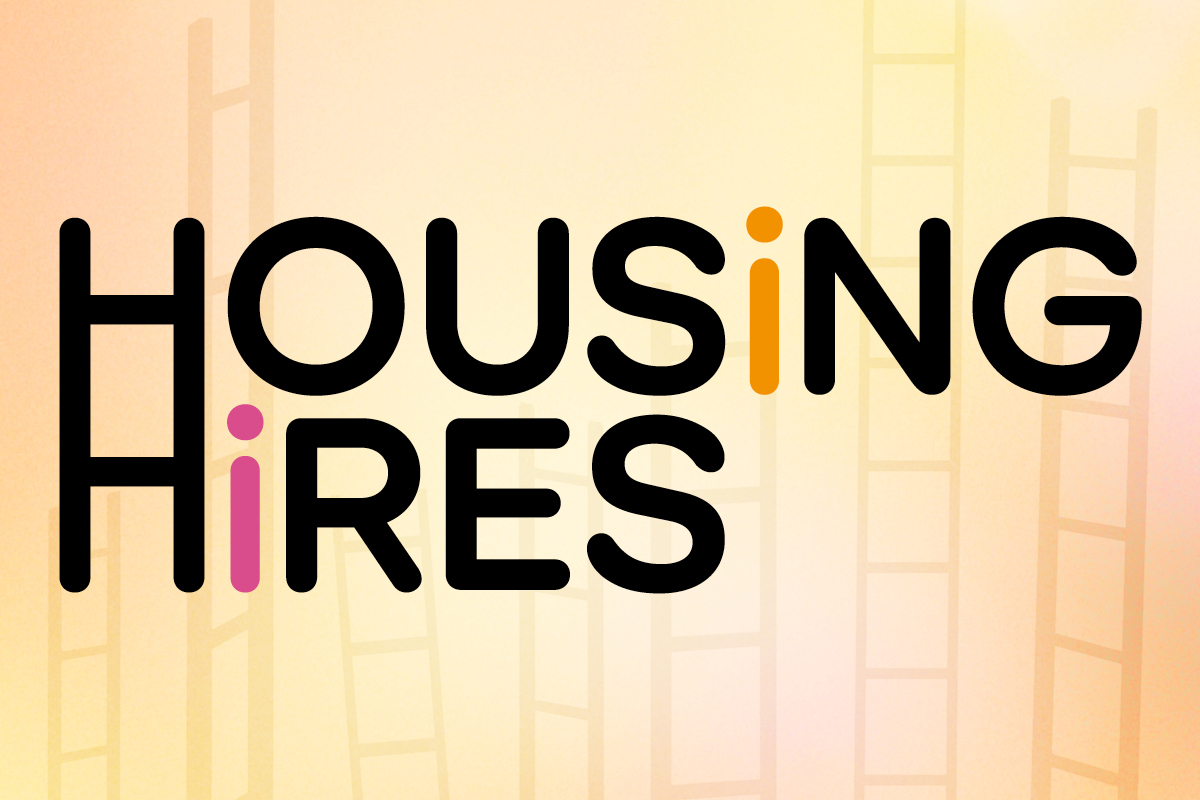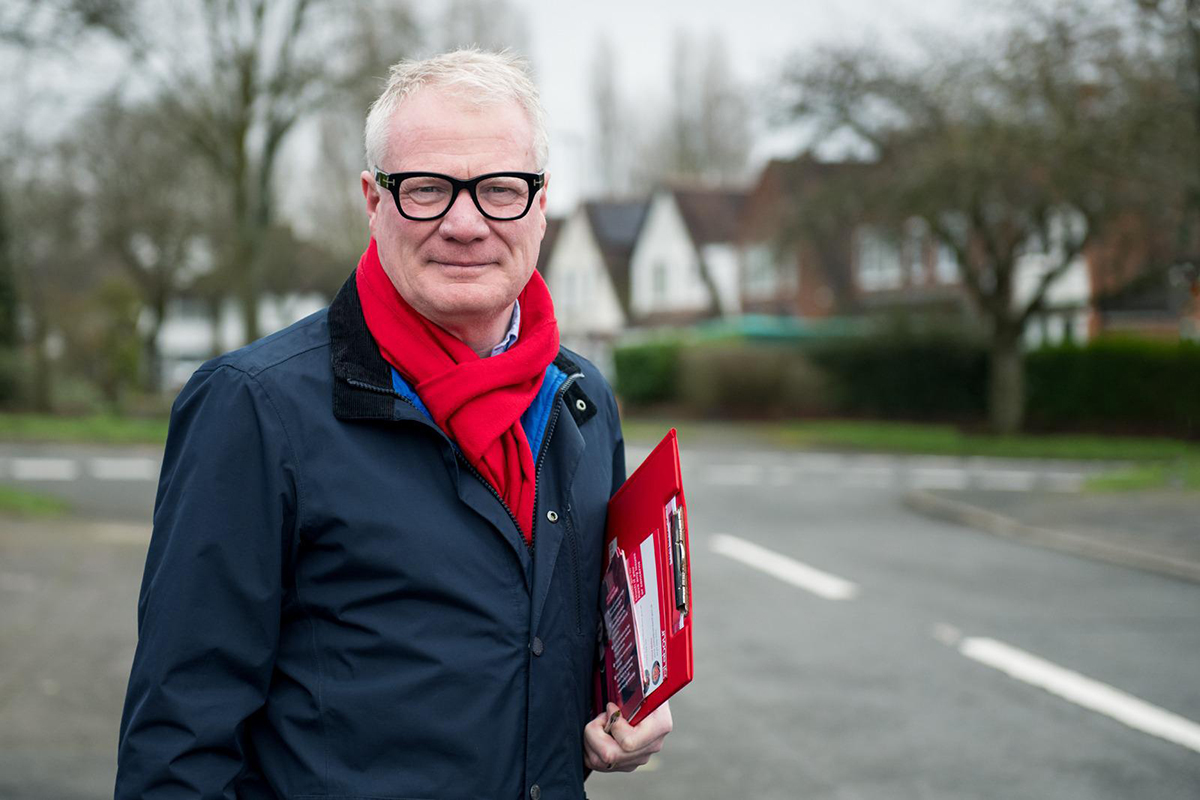The North East’s new mayor sets out her ambitions for social housing
Labour’s Kim McGuinness was elected as the first-ever mayor of the North East in May, and social housing is top of her agenda. Martin Hilditch finds out what she is calling for from housing associations, councils and her own party
Inside Housing is speaking to Kim McGuinness barely a week since she was elected as mayor of the North East, but she is not hanging about.
The Labour politician meets us in the offices of housing association Home Group, a stone’s throw from Newcastle United’s iconic St James’ Park football stadium, because she wants to talk about the central role she sees social landlords playing in the region’s future. It is a meeting convened by a group who are going to be crucial to the success or failure of Ms McGuinness’ ambitions: the North East Housing Partnership. Collectively the group of housing associations, councils and arm’s-length management organisations manage more than 200,000 homes in the region – and both they and Ms McGuinness think that number needs to grow dramatically.
Inside Housing is here to find out more about Ms McGuinness’ housing vision and why she sees the sector as one of her top priorities. And, given that our Build Social campaign is calling for the delivery of more homes for social rent to be included in party manifestos for the general election, we are also keen to find out if Ms McGuinness is likely to be pushing her own party to do just that.
For starters, Ms McGuinness says the social housing sector is one she values enormously.
“I grew up in a council house, and I know how important that is,” she says. “There are huge numbers – 66,000 I think at the last count – on the waiting list in this region, and we’re simply not building enough.” The delivery numbers are certainly low – government figures show 94 homes for social rent were completed in the North East in 2022-23, with a further 1,171 affordable rent homes built. “What that means is too many people are either pushed into insecure accommodation – they might be living in really poor-quality, private rented accommodation at the mercy of unscrupulous landlords – or having been a Police and Crime Commissioner, you see some people who were stuck in dangerous or abusive homes.”
The delivery of more social homes – and more homes generally – is “absolutely crucial” if the region is to tackle poverty and create opportunity, she states. The good news for the housing partnership is that Ms McGuinness thinks they are pushing in the same direction. “It’s a really good relationship and I’m looking forward to working together to build more social houses,” she says. At the same time, she talks about the need to be “quite challenging about what I think we need to be delivering together across the region”. Does she mean being challenging to the sector or with the sector to push for more central help for its ambitions?
“I think both,” she replies. “I think together we need to be challenging national government to be saying it is really important that we tackle the housing crisis, and that we build more houses to the greenest standards, creating jobs while we do that. But similarly, I think it is well publicised that some people have had issues in social housing, and that if we want to be a region where everyone has access to a great home, it is incumbent on there being change in the region as well.”
It is obvious, however, that the relationship between Ms McGuinness and the housing providers in the room today has strong foundations, built up over the course of the mayoral campaign. “My feeling, and hopefully others agree, is that they’re up for it,” she adds.
What, then, is her challenge to central government? It is clear from the conversation that she feels the majority of the newly elected mayors are pushing in the same direction when it comes to social housing.
“Yesterday, along with other mayors, we joined a meeting with [current housing secretary] Michael Gove,” she states. “In that we directly challenged him to say we need support to unlock the ability to build more social housing.”
If the polls are right, however, it is her colleagues in the Labour Party who will soon be in charge of policy and purse strings. Housing is an issue she is raising with them already.
“I’m already having that same conversation with our Labour front bench,” she says. “Should we be lucky enough to gain the trust of the people and form that next government, I think it [social housing] will be high up on the agenda. Through devolution, through mayors with local authorities, we will be in a good position to do more along with our social housing partners.”
As mentioned, Inside Housing has been calling on all political parties to include a commitment to build more homes for social rent (we are calling for 90,000 a year in England) in their manifestos, with our Build Social campaign. Is this something Ms McGuinness wants, too?
“I would like to see a commitment to social housing, for sure,” she says. “Certainly, Angela Rayner, who leads the portfolio for Labour on this, has been clear that she would as well. So, I would expect that we will see commitment to social housing coming forward. But we need to build more in general [too] and I think you’re seeing that commitment from the Labour Party really, really clearly. I’m pleased with that, but for me, in this region, I’m ever conscious that social and affordable housing is a really big part of the solution for some of the major challenges we need to solve, such as crippling levels of child poverty.”
More control
In order to improve delivery, Ms McGuinness is clear that the region should be given more power and control over its destiny. And that means that Homes England is in her sights.
“I have called for devolution of Homes England [funding]. I think we should have more local say over what we’re spending money on, as opposed to always having to go to the centre: I don’t think that works. I think we’ve seen that in the small number of social houses that have been built, in the underspends [on the Affordable Homes Programme] that are continual. We need to have much more of a direct say in what goes where and how we are spending it.”
Today, though, is all about the relationship with housing providers in the North East. On the face of it, there is a huge amount of synergy between the North East Housing Partnership’s key strategic priorities (which focus on regeneration and development, sustainability, employment and health, care and homelessness) and Ms McGuinness’ goals. And she is certainly very complimentary in the room today about their approach.
“I do feel quite fortunate that the partnership has formed itself,” she says. “This is a very, very big region and there are a significant number of social housing providers. The fact that there is one table to sit around to have that discussion is a really, really good starting point for us.”
Paul Fiddaman, chief executive of 32,000-home Karbon Homes and chair of the North East Housing Partnership, says the similarities between housing providers in the North East and Ms McGuinness’ agenda is no accident.
“Over the last 12 months, we’ve worked hard to make sure that the partnership that we develop is lined up to be a natural delivery partner for the new mayoral authority,” he explains. “We’ve been able to work constructively with Kim as a candidate to get a sense of what her priorities would be, so it’s no coincidence that the four key strategic priorities for the partnership are very much aligned with Kim’s own personal priorities.”
Mr Fiddaman agrees that more social housing is desperately needed in the region, too.
“Kim mentioned the 66,000 people on the waiting list, over the last four years on average. Across Kim’s geography, the partners have delivered about 1,700 new homes a year, so you do the maths, it’s almost 40 years of pent-up demand in the system. We’ve got to do better.
"Having a mayor that we can work with to influence the way that money gets brought into the region and then deployed I think is a really vital relationship for helping the economic improvement that the region is desperate to deliver.”
We will be covering more on the partnership’s manifesto and strategic priorities in a separate article, but what about jobs? Inside Housing has just launched our Housing Hires campaign, which pledges to both identify skills gaps and shout about why the sector is a fantastic and important place to build a career.
“That is exactly the sort of thing we want to be backing,” Ms McGuinness states.
The sector has the perfect opportunity to train people up for the skills that will be needed for the future prosperity of the region, she adds. “We are training and employing people into the green jobs of the future in this sector in this region while creating those houses.”
“Creating housing creates opportunity in more than one way,” she says. “Ultimately that is what we are trying to do as a region. We want this region to be the home of opportunity. It sounds cheesy, but it should be.”
If today is anything to go by, the mayor and housing providers in the region are very much pushing in the same direction. And the pledges that Ms McGuinness and her mayoral colleagues elsewhere are making (the West Midlands mayor Richard Parker has pledged to deliver 2,000 homes for social rent a year, for example) mean that, if Labour do gain power, Sir Keir Starmer’s team will be being pushed to help with the delivery of social housing from day one.
“It’s a case of how do we take the leadership we have in the region and push that forward so that we are achieving the overall aims of creating opportunities, building more houses, reducing child poverty and health inequalities,” she adds.
Ms McGuinness might be eager to crack on with the job – now all eyes turn to the party manifestos to see if she is likely to be backed with the additional help she is calling for.
Inside Housing political interviews
In the first week of June, we ran a number of political interviews, with politics high on the agenda in the lead-up to the general election and following the recent mayoral elections. Below is a list of articles published:
Liberal Democrats – we want to build 150,000 social homes a year
The Lib Dems back Build Social – and want to build even more social homes. Stephen Delahunty talks to Helen Morgan, the party’s housing spokesperson
Greens call for new role for councils in buying empty and ex-PRS homes
Green Party leader Carla Denyer talks to Grainne Cuffe about how the party proposes to tackle the housing crisis, while focusing on empty homes and added purchasing power for councils
The North East’s new mayor sets out her ambitions for social housing
Labour’s Kim McGuinness was elected as the first-ever mayor of the North East in May, and social housing is top of her agenda. Martin Hilditch finds out what she is calling for from housing associations, councils and her own party
Wales’ 20,000 social rent target will ‘be touch and go, but we’ll still make it’ – minister
Can the Welsh Labour government make good on its pledge to build 20,000 social homes by mid-2026? Jenny Messenger talks to Julie James, the Welsh government’s cabinet secretary for housing, local government and planning
Sign up for our development and finance newsletter
Already have an account? Click here to manage your newsletters












